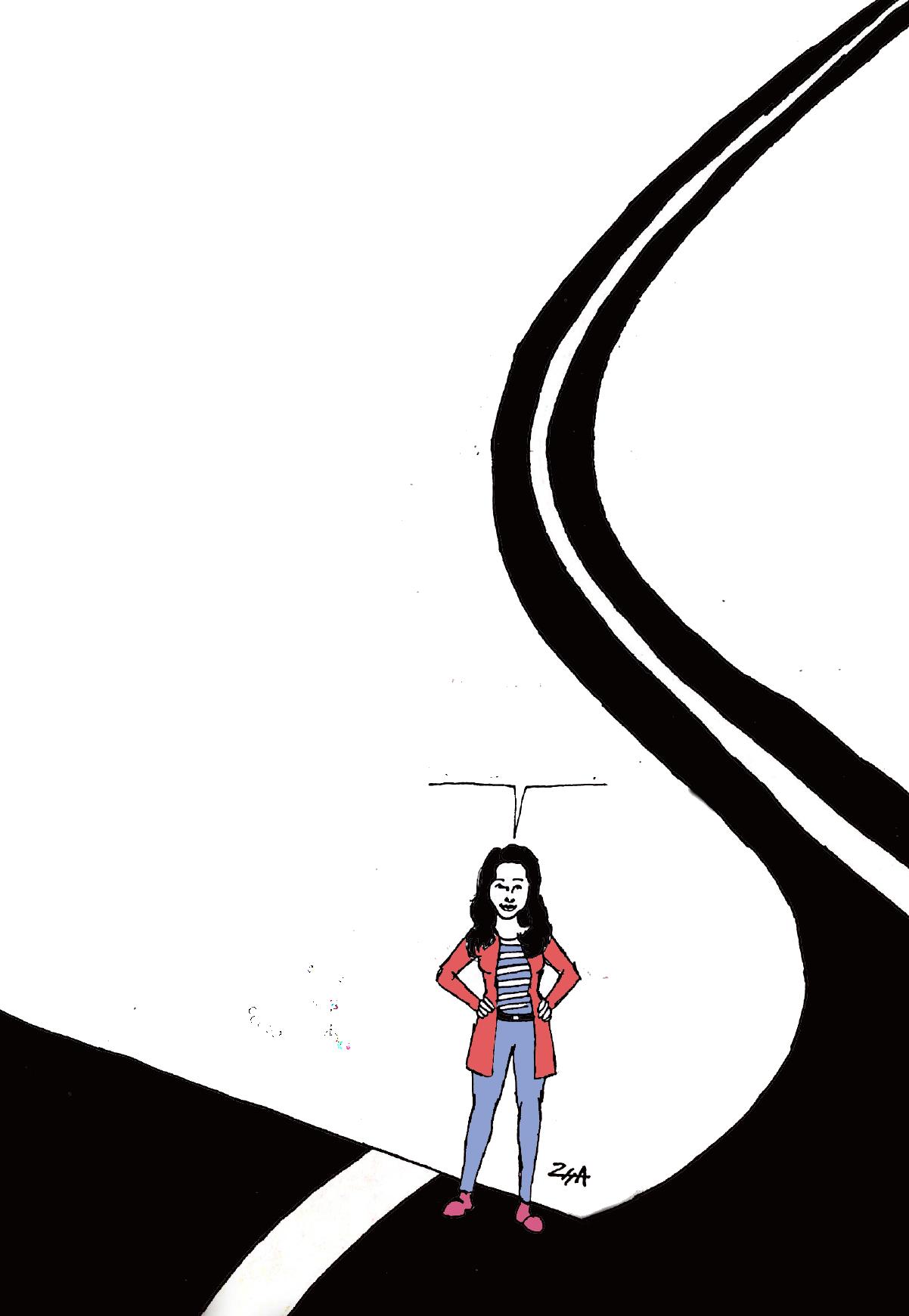OPINIONS
History teaches vital lessons
POLINA DASHEVSKY polina_dashevsky@asl.org
In the past month, we have witnessed the world abruptly transform. From the shut-downs of our favorite local businesses and shops to the closure of international borders, our lives have undergone a considerable amount of change and challenge. While what we are experiencing is new to us, numerous pandemics have swept the Earth thousands of years before our existence. People, with barely any knowledge of science nor any reliable medical care systems in place, endured the deadliest viruses and diseases. While the current pandemic has already devastated national order, shattered international economies and wrecked families all across the globe, we need to acknowledge that we live
unspoken, but prevailing social rules, such as “take only what you need,” have disappeared into thin air. In March, people were ripping hand sanitizers off the hospital walls. People were (and are) physically harassing others on the basis of their ethnicities. People were (and are) making up all sorts of unacceptable, false and over-exaggerated posts on social media. Our society is in a state of chaos. Additionally, at the start of lockdown, panicked shoppers were overbuying produce and essentials. Supermarket shelves were left vacant as people ignored all standards of social behavior amid great panic, with the hope of ensuring the most for themselves and their families. We became indifferent to the fate
anxiety, people are continuing to violate any types of restrictions – social or legal – in place. According to Politico, many Athenians refused to adhere to quarantine as they continued to engage in a variety of social events. However, such disregard brought about various consequences. Many Atheninians faced imminent death as corpses piled on top of one another on the streets. This imagery reminds me of the dead bodies lying on the streets of Ecuador in April and May as a result of a massive COVID-19 outbreak. In addition to the numerous comparisons that could be drawn between COVID-19 and the Plague of Athens, we can also learn a great amount of in-
the orders of our government. Secondly, it is evident that even as time goes by, human nature doesn’t change. This idea is stated by Thucydides himself, who expressed that people will always react in similar ways when faced with catastrophes. As the Athenian plague ignited panic among individuals, their moral compasses vanished. Doesn’t this sound familiar? We need to remember that even amid great panic, we must watch out for others. For instance, don’t be a panic buyer and help those around you to the best of your ability. With all the safety precautions in place, attempt to donate food to the NHS or help those at highrisk of morbidity obtain necessities.
ILLUSTRATION BY POLINA DASHEVSKY
“
We learn history in schools not only to broaden our knowledge, but also to ensure that future generations learn from our ancestors’ mistakes. 8 Opinions
in a world brimming with countless privileges that our ancestors did not obtain. Therefore, it is our duty to listen to the wise voices of the past, as they can teach us valuable lessons on the situation we are experiencing today. For instance, consider the plague that hit Athens in 430 B.C. It was an epidemic that ravaged the ancient Greek city amidst the Peloponnesian War, killing 75,000 to 100,000 people, including the Athenian leader Pericles. Besides the numerous deaths, the plague had an overwhelming amount of social consequences. Thucydides, an Athenian general and historian, described the vanishing of the previously-upheld social morals in his own book “The History of the Peloponnesian War.” He stated that “the catastrophe was so overwhelming that men, not knowing what would happen next to them, became indifferent to every rule of religion or law.” Fast forward 2,440 years and we are witnessing a similar phenomenon:
of others as we started to prioritize ourselves and our needs first. While our society has undergone a colossal amount of change since 430 B.C., Thucydides’ message continues to be relevant today. The uncertainty of our future during catastrophes overwhelms us, and pushes us to cross all norms and boundaries that we previously validated and respected. The parallels between today’s society and that of ancient Greece don’t just stop there. The lack of adherence to laws amid great panic led to the enforcement of stricter policies in Athens. Similarly, when I leave my house to run essential errands, I see other groups of friends outside, violating U.K. prime minister’s stay-at-home order. People’s neglect of social distancing orders led to the allocation of security and police across a diverse range of neighborhoods in London to ensure that people remain indoors. These contraventions further prove that amid national and international
sightful lessons from the experience of our ancestors. One of the key takeaways is that we need to adhere to our leaders’ orders in times of great panic. For instance, when Pericles attempted to institute a nationwide quarantine, it failed – Athenians blindly disregarded his advice, which resulted in disastrous consequences. Boris Johnson, who has indeed previously declared the Athenian leader Pericles his historic idol, is working tirelessly to contain the virus by issuing social distancing orders along with drafting other forms of action. While it is clear that our leaders don’t always make the right decisions, in times of crisis, we need to listen closely to their advice if we want to ensure our health and safety. By ignoring social distancing orders, we are not only putting ourselves in danger, but also our families, friends and other people with whom we come into contact. Therefore, to avoid what happened in Athens, we are better off adhering to
The prioritization of our own selves leads to greater problems in our society, paving the way for further conflict, chaos and division. Do not blame the virus on others, nor harass specific racial and ethnic groups for it. As we are all in this situation together, we need to help one another, rather than pick fights and point fingers. Finally, even in times when the world is overwhelmed by chaos and panic, there is no need to escalate anxiety by creating exaggerated or inaccurate social media posts; even in times of hardship, try to spread positivity. What we need is more generosity, cooperation and understanding. Remember, we learn history in schools not only to broaden our general knowledge, but also to ensure that future generations learn from their ancestors’ mistakes. Therefore, we need to carefully think about the lessons the Athenian Plague teaches us. They will definitely prove to be crucial, if they haven’t already.
The Standard



